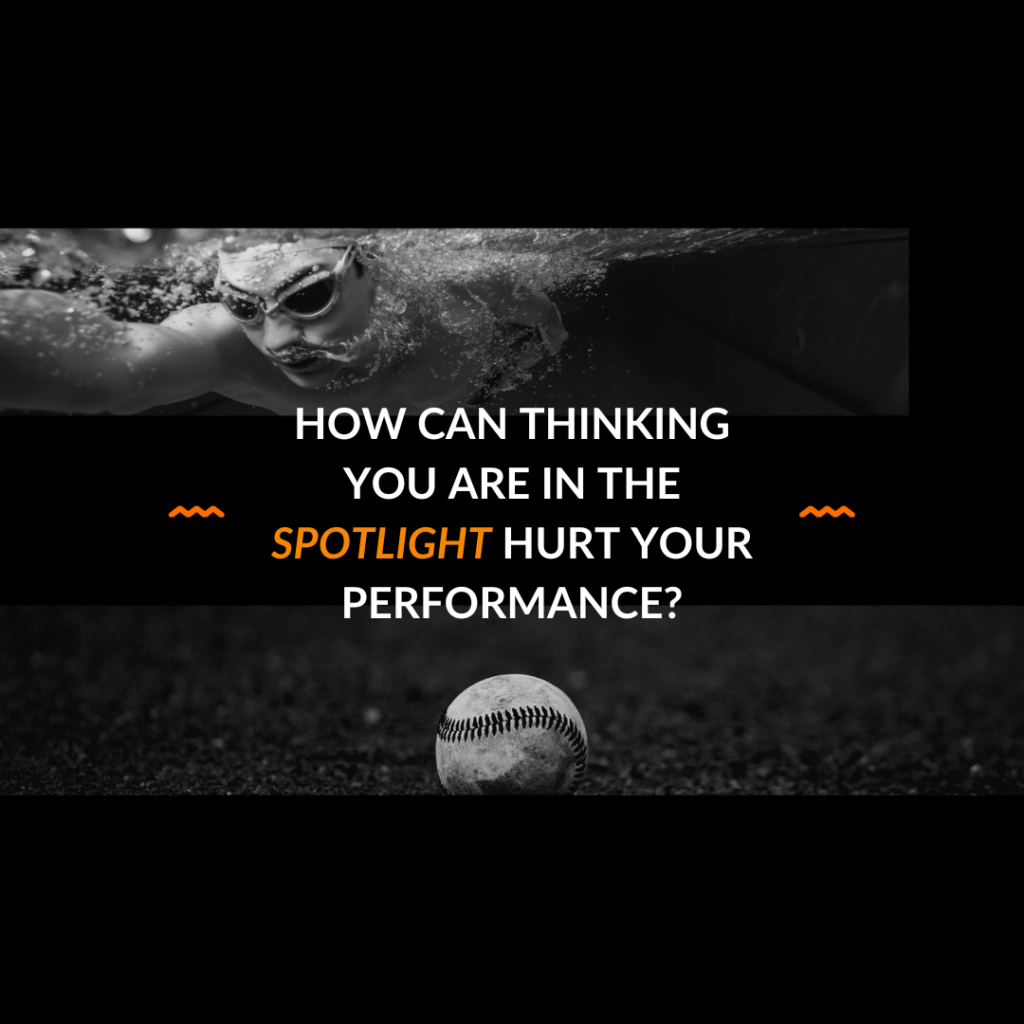I am currently supporting a freshman high school basketball player that expects to have a significant role on his varsity basketball team this season. We are specifically working on developing techniques to build sustainable confidence given the challenges he’s expected to face in a new and highly competitive environment.
In one of our recent sessions, we watched a YouTube video created by a former Division I college basketball player reflecting on how he built his confidence over time. I’ll often use these types of videos as a way to help my young clients better relate to the concepts that I’m teaching, but also infuse a bit of entertainment into the coaching process.
In that video, former Colgate University athlete Tucker Richardson (2023) identifies a psychological concept called the “spotlight effect” The spotlight effect references the idea that others pay significantly less attention to our behaviors than we believe they do. Richardson discusses how his confidence was often diminished when he missed shots because he was so focused on what everyone was thinking about him.

I’ve talked to young athletes about the idea that those around us don’t notice as much about their performances – like when they make mistakes – as they think they do. Some young athletes internalize the message that others don’t dwell on their mistakes nearly as much as they do and it really helps downplay poor performance. However, some continue to struggle with what others think of them and experience their confidence go up and down like a roller coaster depending on the results they experience.
Before writing this article, I was generally unfamiliar with the phrase “The Spotlight Effect.” The purpose of this article is to dig deeper into the concept and help you apply it to improve your performance going forward by learning how you can mitigate the spotlight effect.
One definition states that the spotlight “is a cognitive (i.e., thinking) bias that causes people to overestimate the extent to which others are paying attention to them” (Loker, 2023).
We’ve all been there. We make an error, turn the ball over, commit a foul or penalty, or trip over our feet. We feel like all eyes are on us – judging us, thinking how we hurt the team, thinking that we suck. We can’t stop thinking about that mistake that we made and wearing the feeling of embarrassment and regret that comes with it.
However, dwelling on the mistake and the thoughts and feelings that come with it are a distraction. We often focus on what’s going on inside of us rather than what’s actually happening right now in front of us. So what’s the likely result? More distractions, more mistakes, more shame and embarrassment, poor performance. Rinse and repeat.
Learning HOW to reduce your focus on what others are thinking about you while performing under pressure is important. If you’ve followed any of my content, then you’ll know the solutions for de-emphasizing what others think about us will require PRACTICE. Trying to implement a new mental skill when you’re in a high-pressure situation, like a game, without incorporating it into your training may actually make things MORE stressful when you can least afford it!
In the YouTube video, Richardson talks about how he trained himself over many months to improve his self-talk as a way to improve his confidence. He “forced” himself not to react to missed shots in training and heaped praised on himself as an “elite” player when he made shots.
I give Tucker a great deal of credit for having the awareness to take this step and then having the discipline to implement the change in his basketball training. Consistent practice is often the missing ingredient when athletes are trying to implement new, more constructive ways of thinking.
However, Tucker Richardson is the exception not the rule based on my experience. It is often very difficult for athletes to pinpoint their mental challenges and then develop and apply a new mental strategy completely on their own. Further, athletes may not have an objective voice in the process. Coaches and parents are emotionally invested in their athletes’ success and trying to implement a mental skill without proper guidance and an objective voice can be extemely difficult.
The spotlight effect is a result of a natural tendency toward egocentrism, meaning we think that we are the center of the universe. We think everyone is watching us and judging us. However, in reality, nothing could be further from the truth.
Knowing this, how can athletes diminish how the spotlight effect impacts their performance?
Here are three ideas:
Try mindfulness meditation. Meditation is one of my favorite practices to suggest to athletes because it helps build what I call their “mindfulness muscle.” Being mindful can help you recognize in real-time that your thinking may be irrational and allow you to take action to shift your thoughts accordingly. Further, research has suggested that practicing mindfulness can help develop a more objective view of one’s self by shifting to a third-person perspective – observing yourself from the outside – rather than seeing everything through their eyes (Golubickis et al., 2016).
Develop a gratitude practice. Making a short gratitude list every day can help you develop the habit of taking the focus off of yourself. Think about the people and things in your life, like your teammates, coaches, and parents, that help you develop and compete as an athlete rather than emphasizing your deficiencies or what you’d like to be different.
Ask yourself one simple question. Would you ever talk to a teammate the way that you talk to yourself? When I ask young athletes this question, then the answer is always a resounding NO. So when you are beating yourself up over a mistake or poor play, then think about the way you’d treat a teammate in the same instance. Pat yourself on the back, tell yourself shake it off, and keep going.
I’d love to get your feedback. If you have questions or comments about this post, then you can reach out to me directly at michael@ftbcoaching.com.
Thank you for reading!
References
Golubickis, M. et al. (2016). The observing self: Diminishing egocentrism through brief mindfulness meditation. European Journal of Social Psychology, 46, 521-527.
Loker, E. (2023 June 2). 6 ways to overcome the spotlight effect. Retrieved from: https://www.myndlift.com/post/6-ways-to-overcome-the-spotlight-effect
Richardson, T. (2023). Watch this if you lack confidence in basketball. Retrieved from: https://youtu.be/31NrCvSB3a4?si=zmSFRKsqzqGiK2KG

